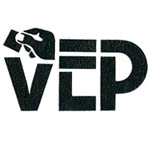By Courtney Chartier, Assistant Head, Archives Research Center, AUC-Woodruff Library.
 “Working for Freedom: Documenting Civil Rights Organizations” is a collaborative project between Emory University's Manuscript, Archives and Rare Book Library, The Auburn Avenue Research Library on African American Culture and History, The Amistad Research Center at Tulane University, and The Robert W. Woodruff Library of Atlanta University Center to uncover and make available previously hidden collections documenting the Civil Rights Movement in Atlanta and New Orleans. The project is administered by the Council on Library and Information Resources with funds from the Andrew W. Mellon Foundation. Each organization regularly contributes blog posts about their progress.
“Working for Freedom: Documenting Civil Rights Organizations” is a collaborative project between Emory University's Manuscript, Archives and Rare Book Library, The Auburn Avenue Research Library on African American Culture and History, The Amistad Research Center at Tulane University, and The Robert W. Woodruff Library of Atlanta University Center to uncover and make available previously hidden collections documenting the Civil Rights Movement in Atlanta and New Orleans. The project is administered by the Council on Library and Information Resources with funds from the Andrew W. Mellon Foundation. Each organization regularly contributes blog posts about their progress.
On January 28, 1972, John Lewis, speaking to the conference of the Black Youth Caucus in Birmingham, Alabama, said “We have reached a point in history where Black people now stand up all across the land and no longer ask, but demand their rights as citizens…I believe that, through politics, we can, once again, place the problems of the poor and the problems of minority groups back on the agenda of America…We cannot be free while our white, red, yellow, and brown brothers and sisters are dehumanized and enslaved by poverty.”
This speech was given in the slim period of time after the Voter Education Project (VEP) had become a separate organization from the Southern Regional Council and the federal government, a time marked by intense press coverage due to the fame of Executive Director John Lewis, and before a period of extreme financial difficulties beginning in 1973, which curtailed VEP’s activities. 1972 was a time of expansion for VEP, including the funding of multiple Chicano voting rights organizations in Texas.
The Chicano Movement was not new to Texas in 1972. Yet, the Raza Unida Party, had just been established in Crystal City, Texas in 1970, and 1972 was the first year that RUP sought a gubernatorial candidate and held a national conference. In 1972, not only did RUP apply for funding from VEP, but Director Jose Angel Gutierrez served VEP as a consultant on applications from voting rights groups targeting Chicanos.
Above left: RUP Director Jose Angel Gutierrez to John Lewis, 1971 December 22. Above right: Luz Gutierrez, wife of Jose Angel, to John Lewis, 1971 December 22. Click images to enlarge.
In the early 1970’s, the Chicano population in Texas was not an established political power and lived in the poorest conditions in the state. “Because the Chicano community has in the past been very non-vocal in civic matters, they have systematically been excluded from community services”, wrote David Gonzales, Chairman of the United Neighborhood Council of Nueces County, “In the past, the poor have felt no need to vote.” Multiple Chicano organizations applied for and received grants from the Voter Education Project, including groups from the burgeoning Chicana movement, like Las Chicanas, in the “freaky state called Texas.”
Above: Alama Canales to John Lewis, 1972 February 16.
Although many of these organizations were organized around or by Chicano communities, their actions were not restricted to Chicanos, but to the unregistered poor across all races, fulfilling the new mission of VEP as outlined by John Lewis. These organizations were frequently run by young volunteers who had recently experienced the same kind of social awakening as the Civil Rights Workers of the 1960s. Wrote Alonzo Villarreal, Jr. Chairman of the Committee for Voter Education of Uvalde County,
“We have been lucky enough to secure an old house for our headquarters and have also, through the kindness of interested people, been able to raise a little money…I cannot stress the importance for this community to raise our organization to its full potential. Our city is in dire need of awakening its citizens to participate in the democratic process…We are having a humble start, yet a very dedicated one.”
Office space and funds were not the only obstacles to Chicano Voting Projects. In reports filed by Fina Gonzales of the Chicano Round Table Voter Registration and Education Project of Bexar County, she explained that members had no trouble registering community members, but problems with city services, as “the county official in charge of processing the voter registration cards submitted by us has many ways to delay the actual registration receipts being sent out. One is by refusing to deputize those of us working on the project”, and neighborhoods “hard to get to because of torn up streets.”
Above: Registration report by Fina Gonzales, 1972 March 25.
Despite these problems, Chicano organizations reported high levels of success with their voter registration drives, frequently registering voters in the thousands in just a few months and inspiring the community. As described by Delia Gonsalez, President of Barrios Associated in Service to America (Del Rio), “I do not have words to express of what great help this assistance has been and what has been accomplished, we have for the first time registered more voters that ever before. Also all our workers have been very patient as to when they will get money, and are willing to work on a volunteer basis if this means we will be able to have programs for the people who need help in the barrios.”
